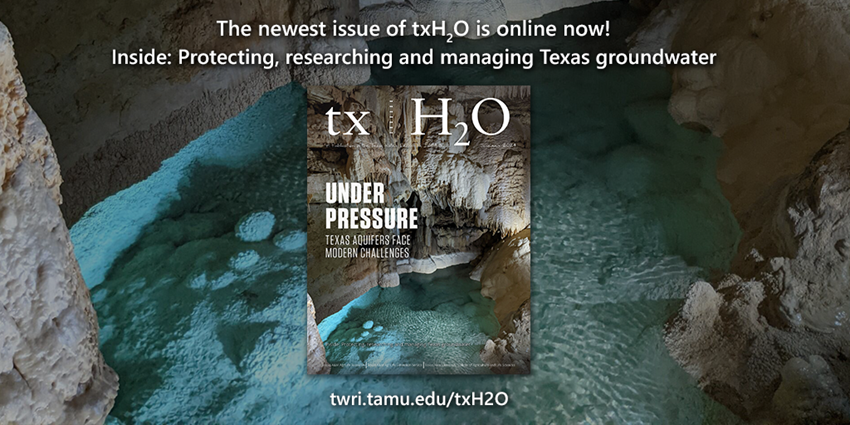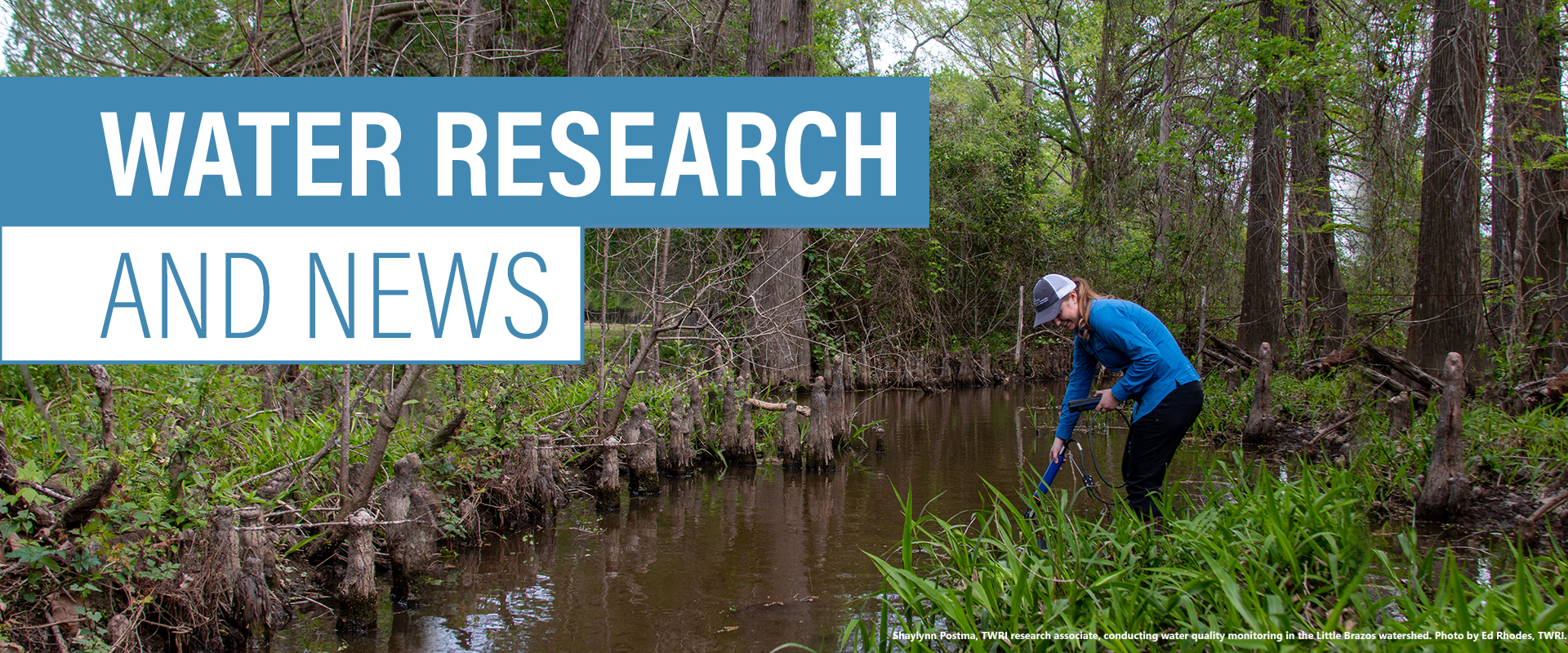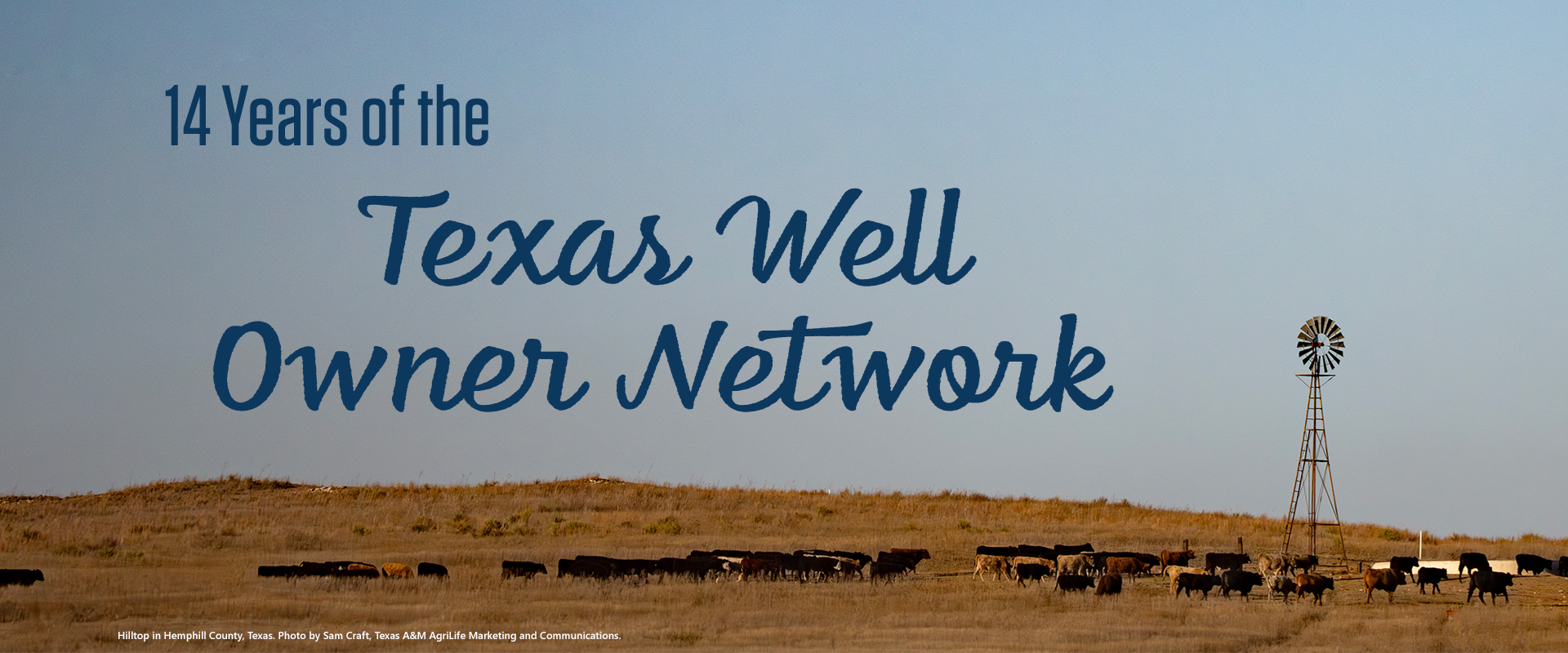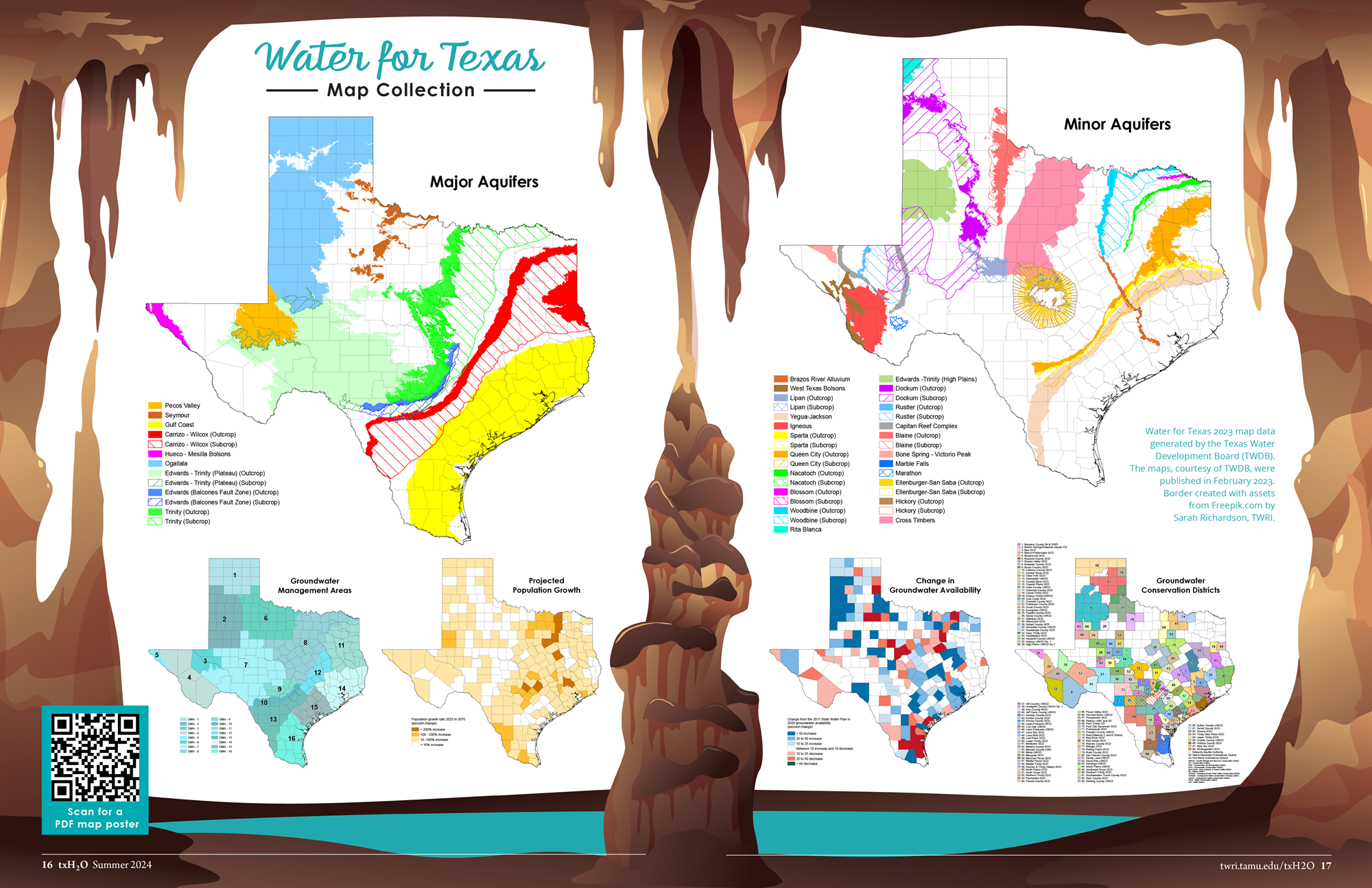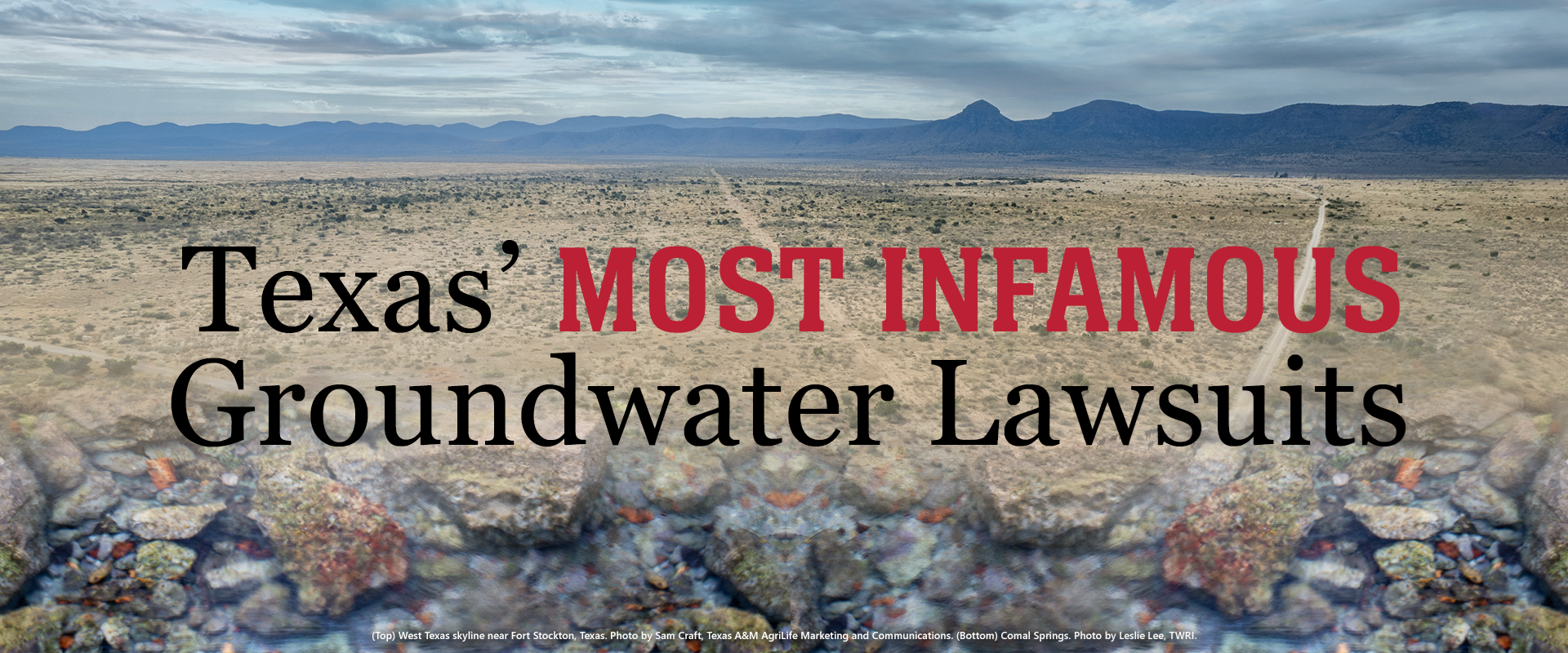Tag: txh2o
-
TWRI publishes new issue of txH2O
The Texas Water Resources Institute recently published the summer 2025 issue of txH2O magazine, focused on the leaders and programs building future Texas water professionals and ensuring future Texas water supplies. In this issue, Texas water innovation and research are under the microscope. From youth water ambassadors to cutting-edge water reuse research, explore the people, science,…
-
TWRI’s newest issue of txH2O spotlights groundwater
The Texas Water Resources Institute recently published the summer 2024 issue of txH2O magazine, focused on the modern challenges facing Texas aquifers. Texas groundwater is legally and hydrologically complicated, and it is in increasingly high demand. In this issue, meet the researchers, local water professionals and educators working to help manage and protect Texas aquifers. From the…
-
Water Research and News
Most Americans are oblivious to ‘forever chemicals’ A first-of-its-kind study published by Texas Water Resources Institute (TWRI) scientists last November measured U.S. adults’ knowledge of perfluoroalkyl and polyfluoroalkyl substances, or PFAS chemicals. TWRI conducted the first generalized U.S. study on public awareness of PFAS and found most Americans do not know what the substances are…
-
Where Does Your Groundwater Come From?
Some aquifers recharge over a long period of time, while others can recharge quickly. Some are confined between two layers of impermeable rock, while others are unconfined aquifers, topped by permeable layers of sediment. Some hold brackish or salty water, others naturally fresh water. Many cities in Texas depend on groundwater. If you live in…
-
14 Years of the Texas Well Owner Network
Pigg said that testing water wells is vital because even if the water tastes fine, there could be harmful bacteria, chemicals or naturally occurring pollutants that can harm humans in it. The next day or later that week, residents return to receive their water quality results and attend an educational program. Pigg helps residents interpret…
-
Understanding Groundwater Law
There are four general approaches to groundwater ownership that states follow. While some states use a combination of approaches, these are the most helpful to learn when it comes to understanding groundwater law. States tend to follow one of these four types of groundwater law, but as groundwater science has evolved and water demand has…
-
The Future of Soil Moisture Sensing
Article originally written by Madison Pigg Tackling this dynamic environment, VZRG began using NASA satellite data in 2002 to study the numerical modeling of hydrological processes, soil bio-geo-chemistry, scaling issues in hydrology and multi-scale observations and measurements. New satellite opens doors for innovative groundwater research Using NISAR, scientists will be able to track groundwater movement…
-
-
Different States, Different Management Strategies
Texas groundwater management evolves Over 70 years later, Texas groundwater law and management is a patchwork of precedents and local GCDs, which remain the state’s preferred groundwater management tool. GCDs must receive local voter approval to be established and enact rules. Districts can manage groundwater through well spacing and production limitations, and can place requirements…
-
Texas’ MOST INFAMOUS Groundwater Lawsuits
Article originally written by Cameron Castilaw “That Ohio Supreme Court ruling was actually based on an 1843 case decided in England, Acton v. Blundell. “So the rule of capture is really a tort law concept and essentially says, ‘you can’t sue your neighbor if your well dries up, or the local spring or something like that.’”…


